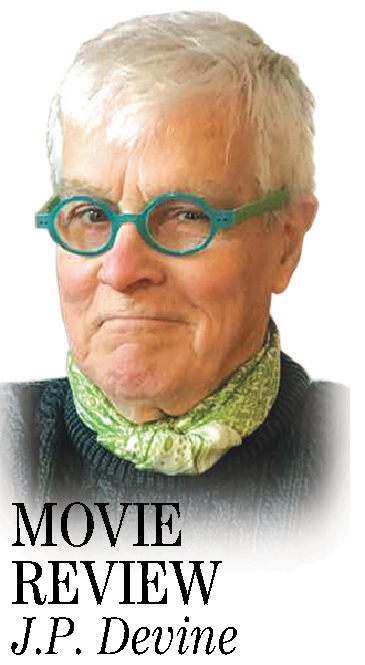Wikipedia tells us: 1998–2002 Argentine Great Depression.
“This was an economic depression in Argentina, which began in the third quarter of 1998 and lasted until the second quarter of 2002, and caused widespread unemployment, riots, the fall of the government, a default on the country’s foreign debt, the rise of alternative currencies and the end of the peso’s fixed exchange rate to dollars.”
And so begins the Maine International Film Festival’s traumatized, coronavirus-haunted 23rd season.
In what is one of the worst summers in American history, what better selection could have been chosen to open this year’s MIFF than Sebastian Borensztein’s Argentine masterpiece, a perfect comedy/drama/thriller/romance/heist with a supernaturally perfect cast.
Here then is a brief telling of this lovely, exciting film, without giving away too much of the plot and certainly not the exciting ending.
We open with the primary players, Fermin (Argentina’s greatest star, Ricardo Darin); his stalwart wife, Lidia (Veronica Llinas); and Fermin’s codger of a best friend, Antonio (Luis Brandoni), standing in the middle of a forgotten town in Argentina. It has a train depot, where the one daily train does not stop.
The town, a whistle stop without a whistle, was once struggling to stay lower-middle class, and is now trying to restore some dignity and reality to what was once a happy spot on the Argentine map.
Fermin, once a one-goal soccer star on the town’s only team, is a bright-but-luckless man, but he has an idea: Let’s buy this abandoned grain silo, he explains, and put together an agricultural co-op, thus keeping local farmers from suffering the whims of market prices.
“This is the best time,” he says.
Famous last words.
Fermin and Antonio collect a group of local characters, all plucked out of a wacko Preston Sturges comedy from the 1930s, to toss in their life’s savings to form the co-op.
Here is where this gang who could not shoot straight if Clint Eastwood held their guns starts slipping on a variety of banana peels.
Fermin takes the collected loot to the local bank to put in a safe deposit box. Wouldn’t you know the banker, Fermin’s childhood friend, has a smile wider than I-95 and a “better idea.”
“Instead of the lock box,” he said, “put your cash into your own account and enjoy the interest.”
Fermin is reluctant to mess with his friends’ savings, but goes along.
Twenty-four hours later, the aforementioned financial collapse becomes breaking news around the world.
All bank accounts are frozen, and Fermin and company are allowed only to withdraw 250 pesos a week.
Yes. You guessed it. The childhood-friend banker had gotten inside information from a master crook named Manzi (Andres Parra) that allowed him to scoop out all the U.S. dollars in the bank — which, of course, included Fermin’s and his friends’ money — the night before the crash.
You are forgiven if you do not remember an identical caper was allegedly pulled off a month ago in our own Washington, D.C.
As the movie progresses, there will be a fatal car crash. And while Fermin is in a coma, the portraits of five Argentine presidents will be replaced in the rotten halls of the capitol.
As in the great Preston Sturges comedies of the 1930s and 1940s (“The Lady Eve,” “Sullivan’s Travels,” “The Palm Beach Story,” “Hail the Conquering Hero”), things get progressively worse.
Then the gang gets word from a bank teller whistleblower that Manzi, the crook who stole its money, is back in town and has installed a cave on his wooded property with a hi-tech vault and safe that contains a fortune.
Yes, you are right. Fermin and company find it and a whole new plot evolves, including a plan — a risky, life-threatening heist — that will have you gripping the steering wheel of your car. (You will have forgotten by now you are at a drive-in in Skowhegan.)
Borensztein’s film, written by him and Eduardo Sacheri and taken from his novel, comes out of nowhere as a major surprise. I am unfamiliar with Borzensztein and, embarrassed to say, the Argentine film industry. But I am hooked and intrigued now, as you will be.
“Heroic Losers” is one of those foreign films where one forgets the subtitles and begins understanding the players. That is a gift.
All the players are magical, including Alejandro Gigena and Guillermo Jacubowicz as the Cheech and Chong of the gang.
Rodrigo Pulpeiro’s camera never loses a gorgeous moment, and Federico Jusid’s “Strauss-ian” score is delightful.
How lucky we are that Program Director Ken Eisen, now encased at his Argentine home, managed to bring this beauty to us.
“Heroic Losers” plays only once, at 8:45 p.m. Tuesday, July 7. Gates open two hours earlier. Advance tickets can be bought at miff.org.
J.P. Devine of Waterville is a former stage and screen actor.
Send questions/comments to the editors.




Comments are no longer available on this story